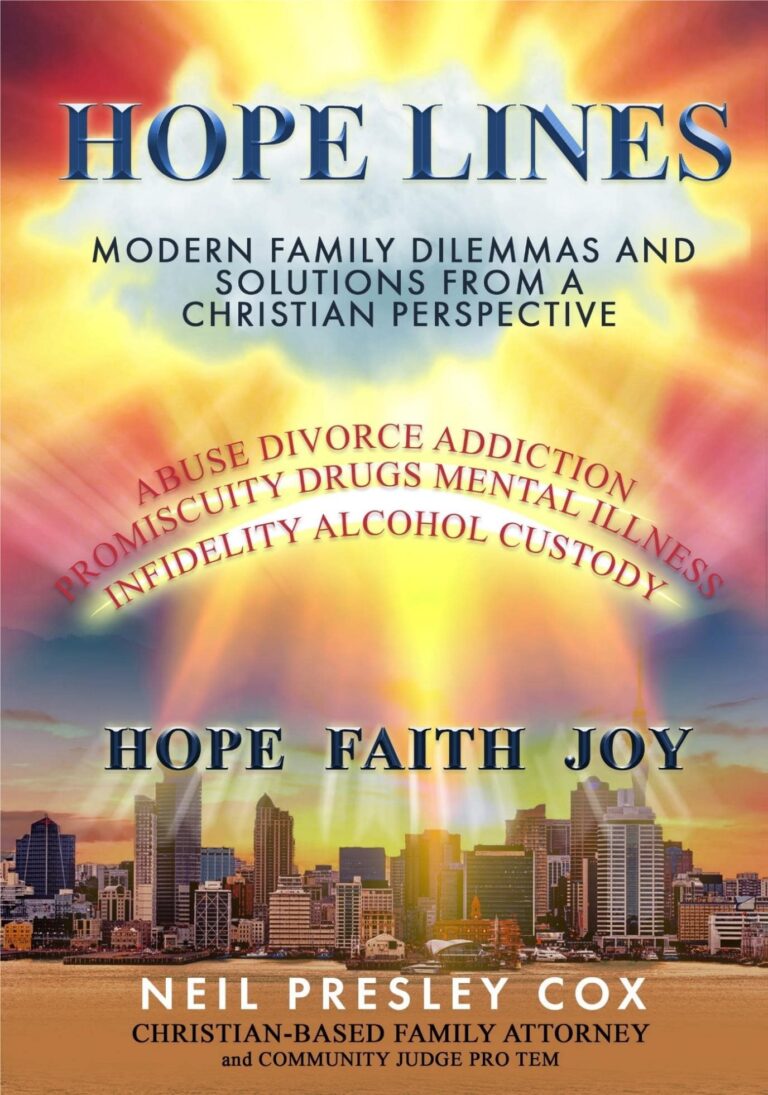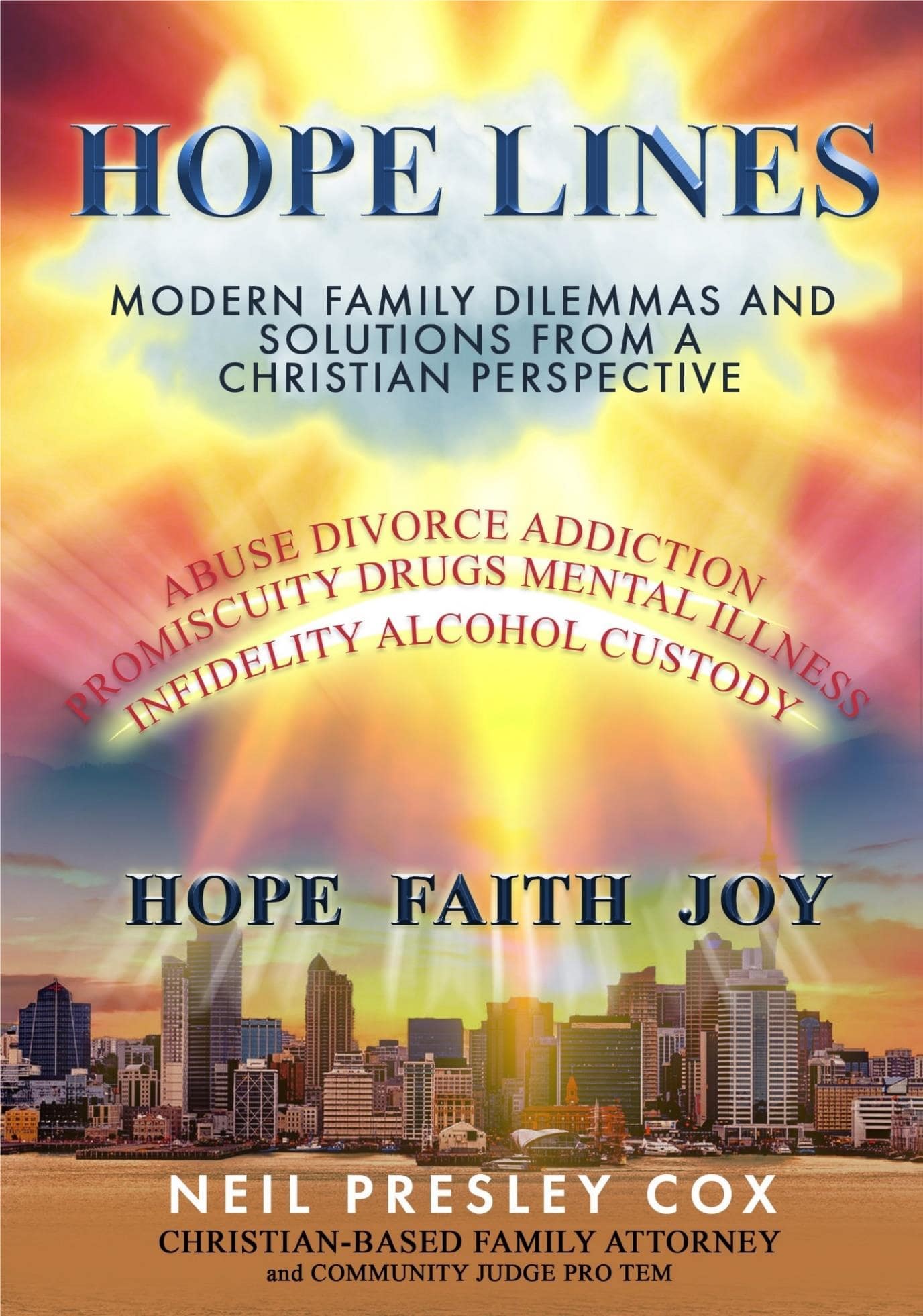The sub-title for HOPE LINES is “Modern family dilemmas and solutions from a Christian perspective”, but family attorney Neil Presley Cox doesn’t really refer much to the Bible or even specifically Christian values in his book. Nonetheless, there is a lot of good advice to be found in these pages, presented in a straightforward way. Cox asserts that “The absence of family, church and community in our children’s lives is taking a toll, adding that “Scandals and cynicism have led people to reject the institutions of church, government and business.” He argues that the choice is simple: sit back or find a new way of doing things: “Spirituality, Higher Power, God, or the Spirit of the Universe.”
HOPE LINES comprises 18 very short fiction stories, which deal with different aspects of relationships that lead to dysfunction and legal problems. These include custody battles, divorce, teenage parents, blended families, drug addiction and domestic violence. Each story is followed by a short advice passage titled “Apply” and then a list of organizations that the reader can contact for assistance. The stories aren’t bad, but Cox isn’t an especially skilled writer. His prose is cliched and his idioms weak, such as “The weeks leading up to jail were a blur in his mind. It was like a bad movie played forward” and “Nerves jangled when he awoke. The drink urge was hitting him by mid-morning.” However, there’s enough drama in each story to keep the reader occupied, and the court and police scenes give good insights into the legal system.
While the advice that follows each story is generally good, such as having a date night with your partner or making an inventory of your life’s highs and lows, Cox too often fails to explain how people can follow that advice. After one of the blended families stories, for example, he writes, “The trick is to avoid having another baby with someone else who will not be a loving parent to your child.” His “5 Percent Rule” seems especially useful: in any crisis, just deal with small things one at a time. But Cox also gets a few things completely wrong, such as citing studies showing that video games make young people violent. (The best studies actually show that young people already predisposed to violence play such games – were it otherwise, millions of youngsters would be committing assault and murder.) And, naturally, he recommends spiritual solutions. “The best doctors are open to spiritual approaches,” he writes. “Miracles of regeneration and healing occur.” Persons who are already predisposed to such beliefs are likely to find much that is useful in this book.
Neil Presley Cox offers a lot of good advice in HOPE LINES’s pages, much of it written in a straightforward way. Persons who are already predisposed to Christian beliefs are likely to find much that is useful in this book.
~Kevin Baldeosingh for IndieReader


